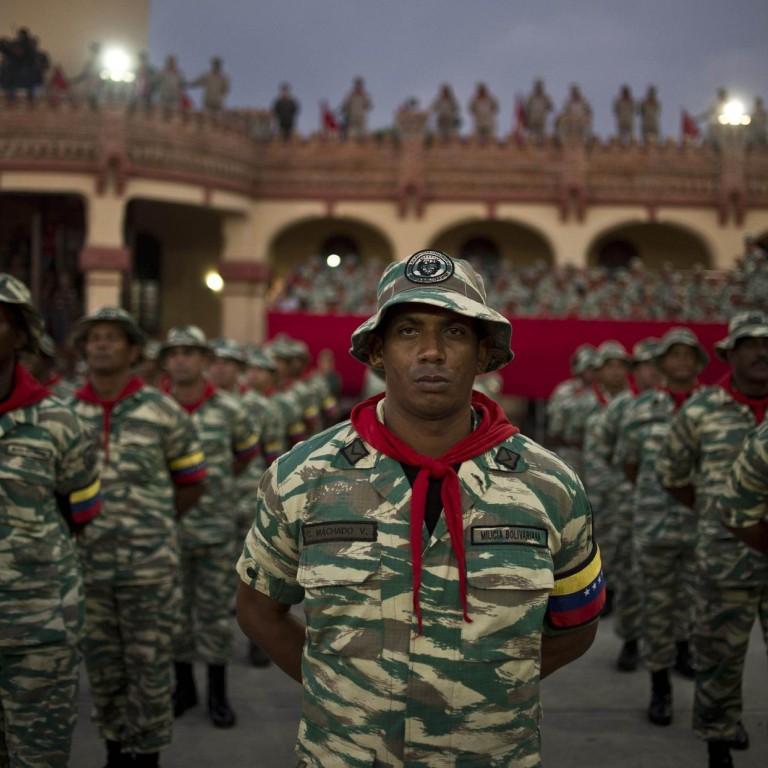
Deeply divided Venezuela goes to the polls to pick a new president
The rich go to the polls seeking an end to the 'Hugo Chavez nightmare' but the poor are wary of the 'rickety bourgeoisie'
A deeply divided Venezuela picked a new leader yesterday, with the rich calling for an end to the "Hugo Chavez nightmare" and the poor warning against the bourgeoisie returning to power.
Being poor is not a prerequisite for supporting the late Chavez's anointed heir, acting President Nicolas Maduro, and you do not have to be rich to support his rival, Henrique Capriles.
But their presidential campaigns have laid bare the intensely sharp political divisions that marked Chavez's 14-year rule until his death from cancer last month.
"When I look at Venezuela, with all that oil, and see what is going on around me today, it makes me so terribly disappointed," said Alexis Chacon, 74, giving a state of the nation at the upscale Altamira Club in Caracas.
His friend, real estate agent Gary Rottemberg, 69, said: "The biggest damage Chavez did was to achieve a total separation of the two sides," referring to Chavez's years of pitting wealthy against the poor.
The populist-socialist president doled out billions of US dollars in jobs, education, housing and subsidised food.
Although Chavez built a rabidly supportive fan base and reduced poverty from about 50 per cent to about 30 per cent, the economy is still largely oil-based, food shortages are frequent and the country has one of the continent's highest crime rates.
"They just do not understand what work is," Rottemberg said, highlighting class divisions in a society in which handouts play key economic and political roles.
Not 10 kilometres away, in the humble hillside slum of Petare and its thousands of tiny, precariously-perched, red-clay block homes, Lourdes Perez brandished her Hugo Chavez doll, decked out in tiny military fatigues.
"He took the blindfold off us all. The opposition people want to walk all over poor people and black people," argued Perez, 75, who is Afro-Venezuelan. Standing amid stocks of bananas, eggs and rice, she said that she and her 11 children were all "Chavistas" and were voting for Maduro.
Chacon and Rottemberg were joined by their friend Guadalupe Garcia. She inherited an engineering company from her late husband and has one son in New York and another in Los Angeles.
"There used to be respect here," Garcia recalled of the pre-Chavez era. "But since Chavez came to office [1999], our lives have been a lot worse for it. I have an apartment at the beach, and I cannot even go there because of crime. I cannot go downtown alone because of crime."
Chacon, who runs a chemical company, said: "The Hugo Chavez nightmare has sunk this country."
The three are what ruling party politicians, including Maduro, openly and bitterly call "rickety bourgeoisie".
Maduro has called Capriles, the centre-left Miranda state governor, a "decadent prince of the bourgeoisie" who will not prevail against a candidate who is "working class, and of the people".
On Saturday night, Maduro met members of Venezuela's 125,000-strong citizen militias outside a museum that holds Chavez's remains to mark a poignant anniversary - eleven years since Chavez was triumphantly restored to power after a failed coup initially recognised by the US government.
Victorino Matheus, a 68-year-old bus driver, said: "Maduro is the guy Chavez selected for us," he said, "and the guy we are going to follow".
